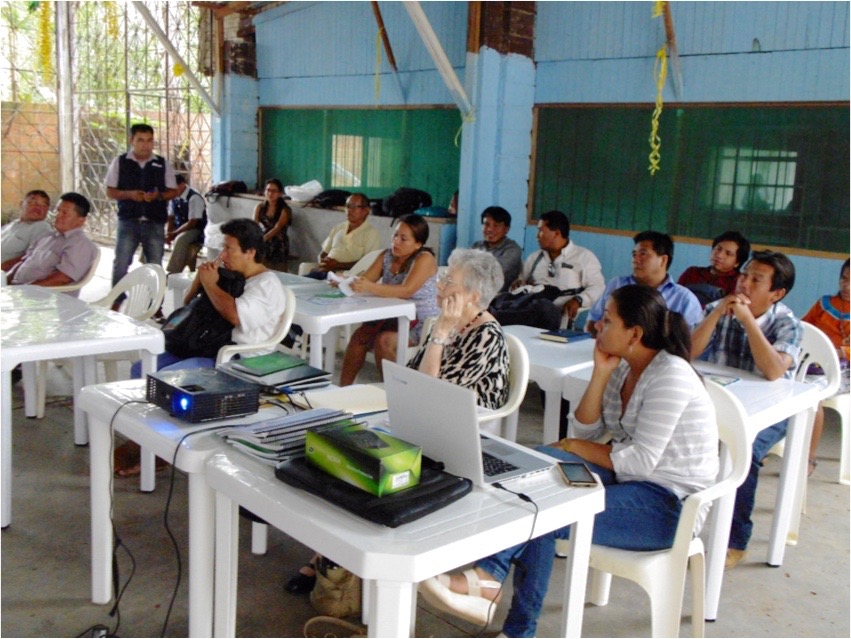Working Under the Shade of a Mango Tree
/DONATIONS ARE NO LONGER BEING ACCEPTED FOR THIS PROJECT.
Thank you to those to those who donated in the past.
Last month near Pucallpa, Peru, our partner organization AIDI (Asociación Indígena de Desarrollo Integral) sponsored a Grade 2 primer development workshop with the participation of teams from six minority language communities. Four of the languages are the most spoken indigenous languages in the Peruvian Amazon—Asháninka, Awajún, Shipibo, and Matsigenka.
Map shows where the participants language groups are located in Peru.
Dr. Patricia Davis led the this four-week long workshop. The workshop was designed to develop Reading Primers for Grade 2 and also provided a short training session on how the primer lessons should be taught. Dr. Davis and her Peruvian assistant, Eva Mamaní, supervised drafting and checked the materials as the authors progressed. In addition to the six language teams, another team finished a textbook for teaching Spanish in Grades 1 and 2. Two additional participants arrived unexpectedly to complete a Kindergarten Workbook in the Shipibo language. Iris and Mercy heard about the workshop and wanted to complete this desperately needed workbook.
Access to books in this area is a challenge that AIDI has worked earnestly to overcome.AIDI and numerous other indigenous organizations are banding together to petition for the printing of the books and seek new sources of funding. (Until the indigenous organizations began to support the project this year, AIDI had not been successful in finding funding.) In the second week of the workshop, reports of the workshop were broadcast by radio to over 400 Shipibo communities. These broadcasts resulted in requests for books in that language. This was good news given the concerns that the Shipibo workshop participants have about the fate of their language.
Excitement was tangible among the workshop participants, although the work was hard and the weather warm, despite the shade of a large mango tree covering the working space. Dr. Davis wrote that she is grateful for the friendship and loyalty of these capable people. They demonstrated the heart of International Mother Language Day, whose theme this year is “Towards Sustainable Futures through Multilingual Education”.
On its web page dedicated to this day, UNESCO writes, “It is through the mastery of the first language or mother tongue that the basic skills of reading, writing and numeracy are acquired. Local languages, especially minority and indigenous, transmit cultures, values and traditional knowledge, thus playing an important role in promoting sustainable futures.” So this year as we celebrate International Mother Language Day, we reflect on the positive impact multilingual education has for millions of indigenous language speakers around the world. The workshop led by Dr. Davis is a wonderful example of this. We applaud the commitment and hard work of Dr. Davis and the educators from these six minority language groups.
As the participants from this workshop return home, they are anxious to use the books in their schools and to continue promoting mother tongue education. Because of the month spent learning together, they feel they know how to teach better and look forward to passing on to others what they have learned.
SIL LEAD partners with AIDI to provide scholarships to indigenous teachers in the Peruvian Amazon. Through their sponsorship of and participation in the workshop, their knowledge of and commitment to multilingual education was also strengthened.





